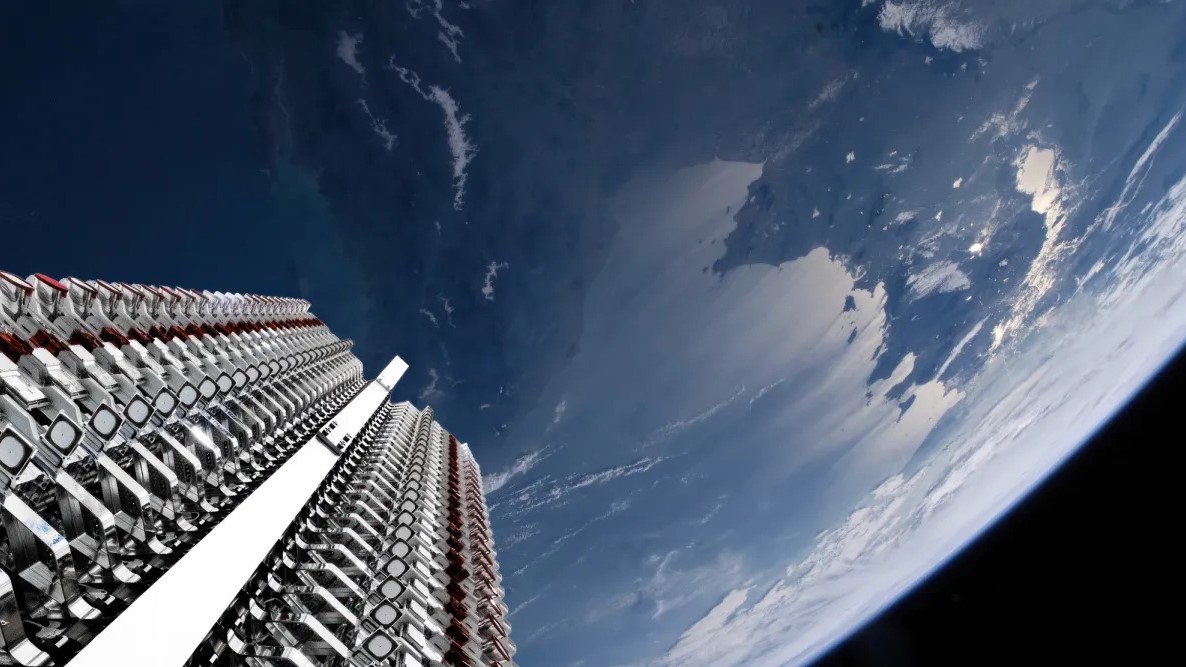Taiwan is actively discussing collaborating with Kuiper Systems (a subsidiary of Amazon) on satellite-based communications as the island nation looks to strengthen its mobile phone and internet infrastructure amid the looming threat of a Chinese invasion.
With increasing concerns over the vulnerability of undersea cables, Taiwan is turning to Low-Earth orbit (LEO) satellites as a crucial backup for its digital infrastructure.
This move is seen as an important step to secure continuous connectivity in the event of a cyberattack or military action that could disrupt traditional communication systems.
The war in Ukraine has already demonstrated the role of satellite internet during crises, as SpaceX’s Starlink system proved essential in reestablishing communication in areas disrupted by Russian attacks.
The success of the satellite-based solution had such an impact that Moscow was forced to devise new tactics for detecting and neutralizing Starlink signals.
Taiwan’s Technology Minister, Wu Cheng-wen, confirmed on December 17 that the government is considering multiple satellite communication providers from North America, Canada, and Europe.
However, he singled out Amazon’s Kuiper as the most advanced in its development stage, which makes it a leading candidate for collaboration.

“Amazon’s Kuiper is the most mature in the development stage so far, so we are discussing at this moment whether it’s possible to collaborate,” Wu said.
Taiwan’s interest in Amazon’s Project Kuiper grew after it encountered limitations with French satellite operator Eutelsat’s OneWeb network, which reportedly failed to meet its capacity demands.
Last year, Eutelsat partnered with Taiwan’s largest state-run telecommunications provider, Chunghwa Telecom. However, financial challenges have delayed the launch of Eutelsat’s second-generation satellites, further fueling Taiwan’s desire for more reliable alternatives.
Amazon’s Project Kuiper is positioning itself as a major player in the satellite communications industry, with plans to launch a constellation of 3,000 satellites into space by next year.
This network promises to provide high-speed internet worldwide, especially to underserved regions. Taiwan’s government hopes that such technology will ensure uninterrupted communications even in a crisis.
In addition to its talks with Project Kuiper, Taiwan is also focused on creating a national satellite communications provider, a development previously reported by the EurAsian Times.
Wu revealed that the government is considering launching its own rockets, with plans to select a launch site in southeastern Taiwan, expecting to begin operations within the next five years.
However, experts have warned that Taiwan would need to deploy hundreds of satellites to ensure reliable, uninterrupted backup internet access across the island.
Why Taiwan Is Shying Away From SpaceX’s Starlink?
SpaceX’s Starlink satellite internet service has established itself as the leading provider in the market. However, Taiwan has expressed caution regarding Elon Musk’s company and is actively seeking alternative options for satellite-based internet.
Starlink is not currently available in Taiwan, as earlier discussions reportedly broke down over Taiwan’s requirement that any joint venture include a local entity holding a majority share.
Taiwanese officials explained that they could not proceed with Starlink because Musk’s company refused to agree to a partnership in which a Taiwanese entity, such as Chunghwa Telecom, would hold at least 50% ownership, as mandated by Taiwan’s government.
However, Elon Musk’s refusal to relinquish control extends beyond Taiwan. He has consistently resisted giving up authority over his ventures.
Even in China, a country known for demanding that foreign companies give up ownership stakes, Musk has successfully maintained complete control over Tesla’s operations.

Nonetheless, in addition to business considerations, Taiwan’s concerns are compounded by Musk’s large commercial interests in China and his controversial statements regarding Taiwan’s political status.
Musk has repeatedly expressed views that align with China’s stance on Taiwan, suggesting that Taiwan is a part of China.
In 2022, Musk controversially proposed that the conflict be resolved by ceding at least partial control of Taiwan to China, fueling concerns in Taipei. Moreover, he referred to the island as an “integral part” of China, a statement that drew widespread criticism.
Taiwan’s concerns also extend to the possibility that SpaceX could restrict or block the service during crises. For example, Musk has previously restricted the system’s use, such as blocking it to prevent its use in Ukraine’s long-range drone strikes against Russia, citing concerns over escalating nuclear tensions.
Given these issues, Taiwan is exploring other satellite providers to secure reliable, independent communication in the face of potential threats.
- Contact the author at ashishmichel(at)gmail.com
- Follow EurAsian Times on Google News




